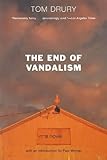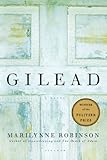
 Driving to Des Moines, Iowa, I picked up a hitchhiker, a young man from San Diego who’d spent the past few months in the Midwest and was traveling to Chicago. On the way to the city, we talked about various things: our points of origin; politics after passing a field plowed into the shape of Mitt Romney’s logo; literature, from Joyce to McCarthy and Dickens, “you should try to serialize your work;” to the troubles of meeting people on the plains. “It’s just so spread out,” he said.
Driving to Des Moines, Iowa, I picked up a hitchhiker, a young man from San Diego who’d spent the past few months in the Midwest and was traveling to Chicago. On the way to the city, we talked about various things: our points of origin; politics after passing a field plowed into the shape of Mitt Romney’s logo; literature, from Joyce to McCarthy and Dickens, “you should try to serialize your work;” to the troubles of meeting people on the plains. “It’s just so spread out,” he said.
I was coming from Nebraska, a new arrival myself, headed east to visit a friend. Before I came across the hitchhiker, I’d been thinking about two authors local to the area, Tom Drury and David Rhodes, and their works. In particular I was thinking about a scene from Drury’s Hunts in Dreams. In the scene, Charles Darling, a good for nothing from Drury’s earlier The End of Vandalism, sneaks into an old woman’s home to steal an heirloom shotgun and replace it with another. Hearing the woman come down the stairs, Charles takes a seat rather than risk a bullet on his way out. Before he can turn a light on, the woman, Farina, belts him with a coathanger. He tells her who he is, at which point she turns on the light and gives him some ice for his nose. After discussing the shotguns, Charles leaves with both, being decided the rightful owner of the heirloom. Where in the world could this be the end result of a midnight breaking and entering?
Though Drury’s book has no specific location other than a fictional Grouse County, after arriving in Des Moines, I would place my bet on Iowa — Drury was born there, after all. Upon arrival at my friend’s place, I was welcomed into the house in an offhanded sort of way, as if I were a local boy who came by every so often to play and eat whatever was on the counter. This is a peculiar sort of behavior, and it’s something I hadn’t seen since I actually was a child, living in a country cul-de-sac.

 I grew up in Ohio. Until grad school, the largest city I’d ever lived in had a meager and falling population of 60,000. I grew up with blue collar people, veterans, farmers, but they were rarely who I read about. The little bit of literature I was exposed to in my early days was not rich in Midwestern ties. The Grapes of Wrath is closest, though Oklahoma is nebulously neither the Midwest nor the South. Aside from the geographically relevant works of Louise Erdrich and Toni Morrison, there wasn’t a whole lot I’d read that I might consider Midwestern. The only real example is from my junior year in college, Marilynne Robinson’s Gilead, which is set in Iowa in the 1950s. Robinson’s Iowa is as close as I’d come to the bucolia of my youth.
I grew up in Ohio. Until grad school, the largest city I’d ever lived in had a meager and falling population of 60,000. I grew up with blue collar people, veterans, farmers, but they were rarely who I read about. The little bit of literature I was exposed to in my early days was not rich in Midwestern ties. The Grapes of Wrath is closest, though Oklahoma is nebulously neither the Midwest nor the South. Aside from the geographically relevant works of Louise Erdrich and Toni Morrison, there wasn’t a whole lot I’d read that I might consider Midwestern. The only real example is from my junior year in college, Marilynne Robinson’s Gilead, which is set in Iowa in the 1950s. Robinson’s Iowa is as close as I’d come to the bucolia of my youth.
This, thankfully, changed once I set out beyond the Midwest itself. While in L.A. and San Francisco respectively, I stumbled on the works of Drury and Rhodes. Drury is famous for a verisimilitude in character and prose so exacting that it seems improbable, while Rhodes has built his books around a certain amount of the preternatural.
 In The Last Fair Deal Going Down, Rhodes camps the Sledge family at the rim of an enormous hole in Des Moines. The Sledges, a hard, skilled people, are warned that there is another city within Des Moines, a “lower city,” which is the very pit in their backyard. The hole is covered in fog, emits strange sounds, and no one that enters ever returns. The protagonist, Reuben Sledge, must navigate both cities while witnessing the collapse of his family. Despite the unreal elements, Rhodes spends much of the book analyzing relatively normal people, and much of his later work examines Midwesterners with a bent approaching magical realism. These works are filled with the simple and stoic people I knew, the towns made of one or two intersections that aren’t worth a stoplight.
In The Last Fair Deal Going Down, Rhodes camps the Sledge family at the rim of an enormous hole in Des Moines. The Sledges, a hard, skilled people, are warned that there is another city within Des Moines, a “lower city,” which is the very pit in their backyard. The hole is covered in fog, emits strange sounds, and no one that enters ever returns. The protagonist, Reuben Sledge, must navigate both cities while witnessing the collapse of his family. Despite the unreal elements, Rhodes spends much of the book analyzing relatively normal people, and much of his later work examines Midwesterners with a bent approaching magical realism. These works are filled with the simple and stoic people I knew, the towns made of one or two intersections that aren’t worth a stoplight.
Then there is the new Midwest of the past few years. Bonnie Jo Campbell, Frank Bill, and Patrick Michael Finn’s Midwest. If the Midwest is not surreal, as with Drury and Rhodes, it is made hyper-real. The Midwest of Bill and Finn is full of the meth-addled and downtrodden. This is, admittedly, a Midwest I know as well as the other. My hometown is the drug capital of a drug-plagued county. The city I lived in before leaving for school was and is desperately poor. For all the Midwest’s evenhandedness, much of it has been embittered by the recession, and the work ethic we’re known for, when without direction, becomes destructive. The literature of this Midwest shows this side of us, the hardened and hungry folk. It forgets, largely, the generous people I know they co-exist with.
 There is no disservice being done here, I think. While Drury is caught up in the day to day and Rhodes works unique bildungsromans, the new Midwestern writers pick up on the other side of the tracks. Finn’s collection, From the Darkness Right Under Our Feet, explores the fallen industrial city of Joliet, Illinois, and its stories are as familiar to me as Drury’s. The accounting for this co-existence is a simple one: the Midwest accommodates an enormous amount of difference already. Instead of being a region known for a certain type of character (you cannot, I expect, call an Ohioan to mind as easily as a Californian, a Texan, a New Yorker), in truth the region is not only its own, but also the bridge between these disparate cultures and literatures. The Midwest holds part of both the Rust and Bible Belts, contains flatlands, hills, mountains in the Ozarks, and the beginnings of the Appalachians. I have seen cacti growing on a cliff in Nebraska, where just across a lake are the Sandhills, America’s best grazing land. In the Big Ten Conference alone people are known to bleed entirely different colors.
There is no disservice being done here, I think. While Drury is caught up in the day to day and Rhodes works unique bildungsromans, the new Midwestern writers pick up on the other side of the tracks. Finn’s collection, From the Darkness Right Under Our Feet, explores the fallen industrial city of Joliet, Illinois, and its stories are as familiar to me as Drury’s. The accounting for this co-existence is a simple one: the Midwest accommodates an enormous amount of difference already. Instead of being a region known for a certain type of character (you cannot, I expect, call an Ohioan to mind as easily as a Californian, a Texan, a New Yorker), in truth the region is not only its own, but also the bridge between these disparate cultures and literatures. The Midwest holds part of both the Rust and Bible Belts, contains flatlands, hills, mountains in the Ozarks, and the beginnings of the Appalachians. I have seen cacti growing on a cliff in Nebraska, where just across a lake are the Sandhills, America’s best grazing land. In the Big Ten Conference alone people are known to bleed entirely different colors.
 Midwestern literature rides this fence, trying to act both as its own entity — perhaps why its residents are so often somehow extra-real — and as a bridge between literatures. This is, I think, the answer behind our relative quiet, that and our native stoicism. Our literature often enough hops over into the Western, much of it goes Southern. Kent Haruf’s Plainsong, conversely, sounds Midwestern to my ear, despite taking place in Colorado. In much the same way that the Central Ohioan accent is the American norm — the accent you hear every day on the news — Midwestern literature has perhaps simply been shelved as “American.”
Midwestern literature rides this fence, trying to act both as its own entity — perhaps why its residents are so often somehow extra-real — and as a bridge between literatures. This is, I think, the answer behind our relative quiet, that and our native stoicism. Our literature often enough hops over into the Western, much of it goes Southern. Kent Haruf’s Plainsong, conversely, sounds Midwestern to my ear, despite taking place in Colorado. In much the same way that the Central Ohioan accent is the American norm — the accent you hear every day on the news — Midwestern literature has perhaps simply been shelved as “American.”
Leaving Iowa just a few nights ago, I was struck by the similarity of the land in the dark to a number of places I had been. In an hour, I saw a field of wind turbines that reminded me of the Texas Panhandle. The shadows of the Loess Hills looked like southeastern Ohio in hour two, and rounding certain corners I expected to be bathed in the gold light that rolls across the horizon in southern California. The Iowa of Drury and Rhodes, the hitchhiker’s bridge across the country. I saw all of that, and after three hours I was home.





